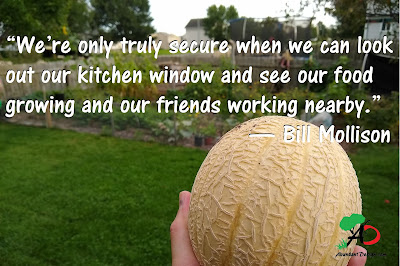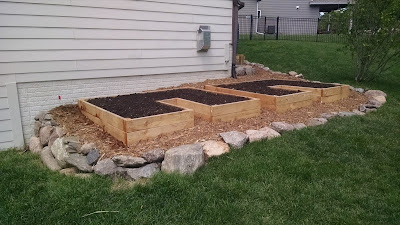This is a great year to start that garden you've always thought about!
 |
| Bill Mollison, co-founder of Permaculture |
With rising inflation, due to a multitude of issues - supply chain problems, lost productivity during the pandemic catching up, and efforts to stimulate a lagging economy - growing a garden can help reduce food costs.
Sure, brand new stylish cedar raised beds will cost a lot to get started, especially with current lumber prices. Wood scraps can also be found if you know where to look, or build one out of used pallets. Look for the "HT" stamp which means Heat-Treated for durability instead of chemically treated. The gardens built with these may not last as long, but they will get you started and can be replaced easily after a few seasons.
 |
| Lasagna Beds in Beaverdale |
 |
Upcycled garage doors used in raised beds at the DMACC Urban Food Forest |
Increasingly bare shelves, with a seemingly random rotation of available products, eggs and chicken (even before the bird flu) to fresh fruit and vegetables, are causing some to think of new/old ways to get through temporary, but increasingly longer, grocery shortages. This can definitely can be alleviated with some homegrown produce, neighborhood veggie swaps and farmers market items.
Also, with a stressed food supply, every calorie you grow and consume, is one less calorie this system has to provide. The more people do this, the more pressure it takes off the food system and supply chains - our friends the farmers, truck drivers and retail workers. Even if you live in an apartment a few herbs or tomatoes growing on a sunny deck or patio makes a difference.
A few dollars in seeds can yield many, many times that in food savings!
You can take pride in what you've helped provide, get the health benefits of soil & being outside with dirt on your hands, and you may even pick up a new hobby!
 |
| Raised beds in Windsor Heights |
 |
| Geoff Lawton Online |








No comments:
Post a Comment